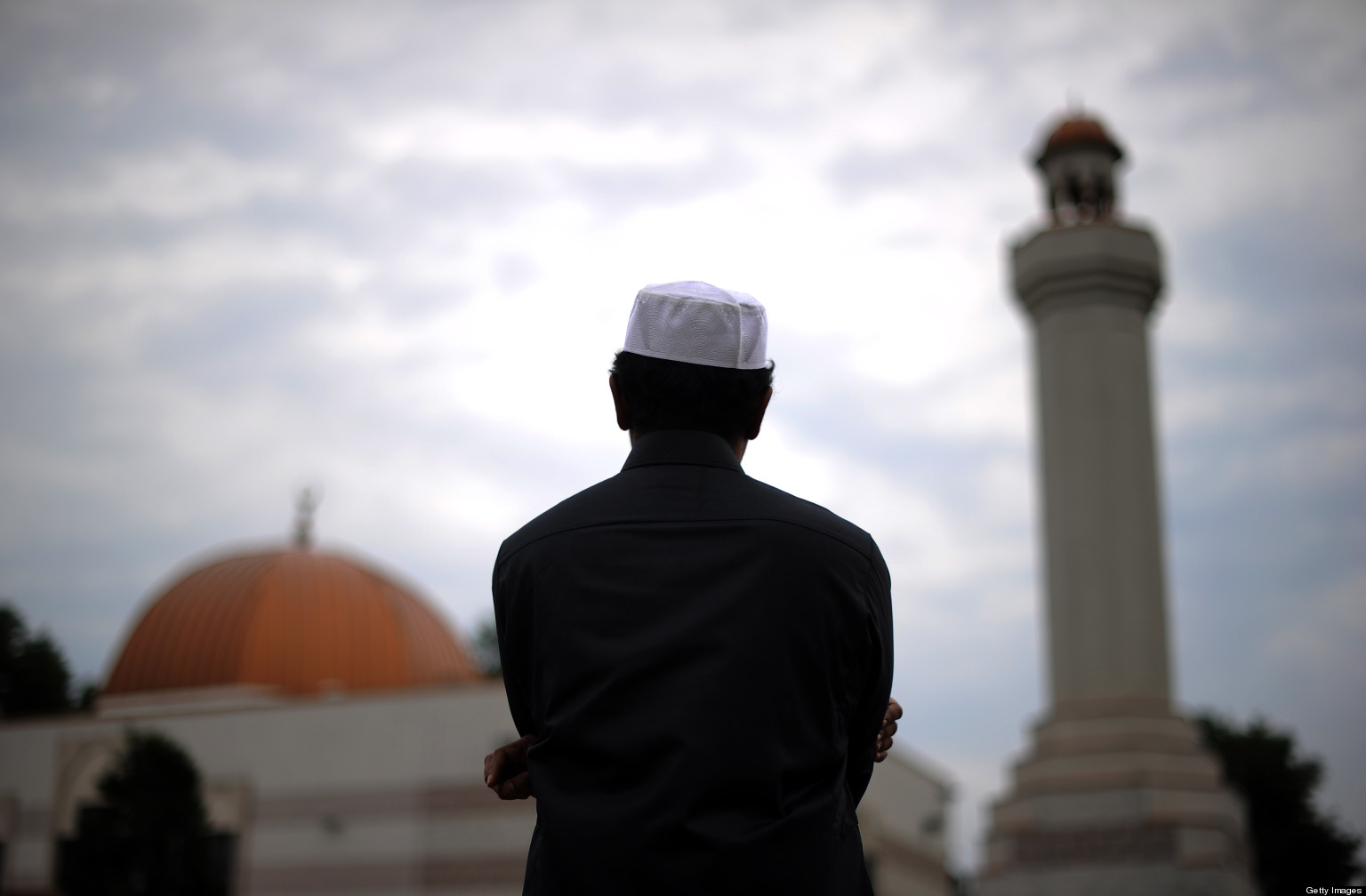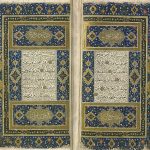By Harun Hanif
The Two Rak’as after Witr This discussion is a translation taken from Raising the Sunna (I’la Sunan) by Imam Zufar Ahmad ‘Uthmani, may Allah reward him profusely.
The Two Rak’as after Witr From ibn ‘Umar, Allah be pleased with him, from the Prophet, upon him be peace and blessings, he said, “Make your final prayer at night witr”, agreed upon , as in Bulugh Maram. (1) This hadith indicates that night prayer should be concluded with witr. However the hadith in Sahih Muslim contradicts it by mentioning in a lengthy hadith, “then he prays two rak’as after he utters salaams whilst sitting”. (2)
Daraqutni recorded in his Sunan from Umm Salama, Allah be pleased with her, “that the Prophet, upon him be peace and blessings, used to pray two briefs rak’as after witr whilst sitting”. In Nayl (3), “As for the hadith of Umm Salama Daraqutni has authenticated it in his Sunan which is established in the narration of Muhammad ibn ‘Abdul Malik ibn Bushran from him. There is no authentication for it in the narration of Abu Tahir from Daraqutni. – ‘Iraqi has said this.”
I say (4): In it is Maymun ibn Musa who is differed about. Ahmad said, “There is no problem with him” as in Ta’liq Mughni but in Taqrib, “truthful but concealing” (5). Thus the hadith is sound but not authentic.Darimi, Tahawi and Daraqutni – and the wording is for the latter two – have recorded from Thawban the freed slave of the Messenger of Allah, upon him be peace and blessings, who said, “We were with the Messenger of Allah, upon him be peace and blessings, on a journey who said, “Indeed travel is tiring and difficult. Thus if one of you performs witr he should perform two rak’as. If he wakes up otherwise they are for him.” In T’aliq Mughni, “Its chain is good” and in Athar Sunan, “Its chain is sound”. The wording of Darami is, “Indeed late nights are tiring and difficult”.
In Kanz ‘Ummal he traces it with the wording of Daraqutni to Sahih ibn Khuzayma, Sahih ibn Hibban, Darami, Tahawi, Nasa’i, Daraqutni, Tabarani, Bayhaqi and Sa’id ibn Mansur. Tahawi has recorded from Abu Umama “that the Prophet, upon him be peace and blessings, used to pray them after witr whilst sitting reciting in them “When the earth is shaken” (6) and “Say: “O disbelievers!” (7) ” – its chain is sound. (8)
Reconciliation between these and the hadith of the section is in many ways.
Amongst them is that which Hafiz has mentioned in Fath (9), its wording being, “Some scholars have taken this stance and have made the matter in his statement: “Make your final prayer at night witr” particular to those who perform witr at the end of the night”.
The weak slave says: Its meaning is to perform witr at night once and not twice so that your final prayer at night will be an odd number because a person who performs witr twice has made his final prayer at night even. This is supported by that which Tahawi has recorded:
Abu Bakra narrated to us, Abdullah Hamran narrated to us, Abdul Humayd ibn J’afar narrated to us, from ‘Imran ibn Abu Anas, from ‘Umar ibn Hakam that Abu Hurayra said, “If I brought three camels and made them kneel to cover them and then I brought two camels and made them kneel to cover them is that not an odd number? He would mention it as a parable for the nullifying of witr” – its narrators are the narrators of Muslim except Abu Bakra, Tahawi’s shaykh who is trustworthy. (10)
Some have interpreted the hadith of the two rak’as after witr as permission and performing witr at the end of the night as recommended. Nawawi says in Sharh Muslim, “Awza’i and Ahmad have taken the apparent of this hadith as Qadi (11) has narrated from them. Thus they permitted two rak’as after witr sitting. Ahmad said, “I do not do it but I do not prevent from doing it”. He said, “Malik rejected it”. I say (12): The correct position is that the Prophet, upon him be peace and blessings, did these two rak’as after witr sitting to highlight permissibility of prayer after witr and to highlight the permissibility of optional prayer sitting but did not persist on that. Rather he did them, once, twice or a few number of times. We have only interpreted the hadith of the two rak’as sitting because the well-known narrations in the two authentic collections (13) and others from ‘Aisha along with numerous companions in the two authentic collections clearly state that his final prayer, upon him be peace and blessings, at night was witr. Thus how could it be imagined of him, upon him be peace and blessings, with these and similar hadith that he would persist on two rak’as after witr and make them the final prayer at night. The meaning is that which we have mentioned that it is to highlight permissibility and this response is the correct one.
As for that which Qadi ‘Iyad has alluded to in preference being given to the well-known hadith and rejecting the narration of two rak’as sitting, that is incorrect because whenever hadith are authentic and combining between them is possible that is what is required. And we have combined between them, praise is to Allah.”
I say: This interpretation only works with the hadith of ‘Aisha in which there is a narration of action. However it does not work with the verbal hadith of Thawban in which is “thus if one of you performs witr he should perform two rak’as. If he wakes up otherwise they are for him”. Interpreting them as highlighting permissibility is farfetched; in fact it is not valid because it contains an instruction that indicates recommended. Perhaps the correct position is in one of the two responses that have been mentioned. In addition it can be said for the first response that the hadith of Thawban is particular to people in risk who do not expect to rise at the end of the night. Thus it is appropriate for them to perform witr at the beginning of the night and perform optional prayers after witr.
Ibn Qayyim says in Zad Ma’ad, “The correct position is to say that these two rak’as occur as sunnas for completion of the witr. Witr is an independent act of worship particularly if it is said that it is necessary. (14) Thus the two rak’as after it are regarded as the sunnas of maghrib because it is the daytime witr and the two rak’as after it is a completion for it; likewise the two rak’as after the night time witr. Allah knows best.”
In summary, his statement, upon him be peace and blessings, “Maghrib prayer makes the daytime prayer odd so make the night time prayer odd” – its chain is authentic (15) – indicates the purpose of the Lawmaker is for the daytime prayer to be odd and the night time prayer odd similarly. Yet despite that the Lawmaker has made sunna two rak’as after maghrib without that nullifying the daytime witr due to them being attached to it and not independent. Likewise the two rak’as after the night time witr are not nullifiers of the night time witr for the same reason. This response is most in line with the Hanafi school as is clear because witr is an independent necessary act of worship with them.
Hafiz ibn Qudama says in Mughni about the two rak’as after witr, “The apparent statement of Ahmad is that doing them is not recommended but it is permitted if a person does them. Athram says, “I heard Abu Abdullah (16) being asked about the two rak’as after witr. It was said to him, “It has been reported from the Prophet, upon him be peace and blessings, from a number of sources. What do you believe about them?” He said, “I hope that if a person does them it is not difficult for him however he does them whilst sitting as has come in the hadith.” I said, “Do you do them?” He said, “No, I do not do them.” Abu Hasan Amidi counted them as regular sunnas but the correct position is that they are not sunna (17) because most of those who described the night vigil of the Prophet, upon him be peace and blessings, did not mention them except ‘A’isha in the narration of S’ad ibn Hisham and Abu Salama from her alone. ‘Urwa, ‘Abdullah ibn Shafiq and Qasim did not mention them from her and most of the companions and the people of knowledge after them are on them being left.”
Notes:
1. Agreed upon is hadith terminology referring to any hadith agreed as being authentic by the two hadith masters Imam Bukhari and Imam Muslim, Allah be pleased with them both.
2. This hadith is recorded in Sahih Muslim, Book of Traveller Prayer, Comprehensive Section on the Night Prayer and the Person who Sleeps through it or is Sick, 1739 in which is stated, “…Then he stands(i.e. the Prophet, upon him be peace and blessings) and prays the ninth. He then sits and remembers Allah, praises Him and supplicates to Him and then utters salaams that he would make us hear. Then he prays two rak’as after uttering salaams whilst sitting…” In addition a similar more explicit narration is recorded in Sahih Muslim, Book of Traveller Prayer, Section on the Night Prayer, the Number of Units of the Prophet, upon him be peace and blessings, at Night and that Witr is One Unit and the Unit is a Valid Prayer, 1724 from Abu Salamah who said, “I asked ‘Aisha about the prayer of the Messenger of Allah, upon him be peace and blessings, and she said, “He would pray thirteen rak’as. He would pray eight rak’as, then perform witr and then pray two rak’as whilst sitting..””
3. Nayl here is a reference to Nayl Awtar the work of Imam Shawkani, Allah be merciful with him.
4. Throughout this tract the phrase “I say” and “the weak slave” refers to the opinion of the author Zufar Ahmad ‘Uthmani.
5. This is hadith terminology, truthful being saduq and concealing being mudallis. For an understanding of these terms and their implication in the Science of Narrators refer to books of Hadith Theory.
6. Sura Zilzal.
7. Sura Kafirun
8. In addition Imam Tahawi records in Sharh Ma’ani Athar the following hadiths which are further proofs for the validity of the two rak’as after witr:
1. from Anas, Allah be pleased with him, that the Prophet, upon him be peace and blessings, used to recite in the two rak’as after witr Rahman and Waqia,
2. from ibn Musayyib that Abu Bakr and ‘Umar, Allah be pleased with them both, discussed witr with the Messenger of Allah, upon him be peace and blessings. Abu Bakr, Allah be pleased with him said, “As for me I pray and then sleep after witr. Then when I wake up I pray even numbers until dawn.” ‘Umar, Allah be pleased with him, said, “However I sleep after even numbers and then perform witr at the end of predawn. The Messenger of Allah, upon him be peace and blessings, to Abu Bakr, Allah be pleased with him, “This one has been cautious” and he said to ‘Umar, Allah be pleased with him, “This one has been firm”. The Messenger of Allah, upon him be peace and blessings, not rebuking him (i.e. Abu Bakr) is a proof that the rule is as he was doing and that optional prayers after witr do not nullify it.
3. A man asked ‘Ammar ibn Yasir about witr. He said, “As for me I pray witr and sleep and if I rise I pray units of two.” Furthermore ibn ‘Abbas, ‘Ammar, Abu Hurayra and ‘Aisha, Allah be pleased with them, did not believe that optional prayers after witr invalidates the witr.
9. Hafiz in Islamic books when used unqualified is a reference to the hadith master Shaykh Islam ibn Hajar ‘Asqalani, Allah be merciful to him, and Fath is a reference to his masterpiece and universally accepted commentary on Sahih Bukhari Fath Bari.
10. Imam Tahawi comments on this statement of Abu Hurayra by saying, “this, with us, is a sound statement and its meaning is those even numbers that are prayed after witr are odd numbers along with the witr performed.”
11. Qadi here being a reference to Qadi ‘Iyad the great Spanish Maliki scholar from whom Imam Nawawi quotes regularly in his commentary on Sahih Muslim.
12. Here “I say” is Imam Nawawi mentioning his own opinion.
13. The two authentic collections is a reference to Sahih Bukhari and Sahih Muslim as is known in Hadith Theory.
14. The two authentic collections is a reference to Sahih Bukhari and Sahih Muslim as is known in Hadith Theory.
15. The two authentic collections is a reference to Sahih Bukhari and Sahih Muslim as is known in Hadith Theory.
16. Abu ‘Abdullah is the appelage of Imam Ahmad.
17. Note that ibn Qudama here is not negating these two rak’as as sunna rather he is negating the opinion of Abu Hasan Amidi that views them as regular sunnas.




